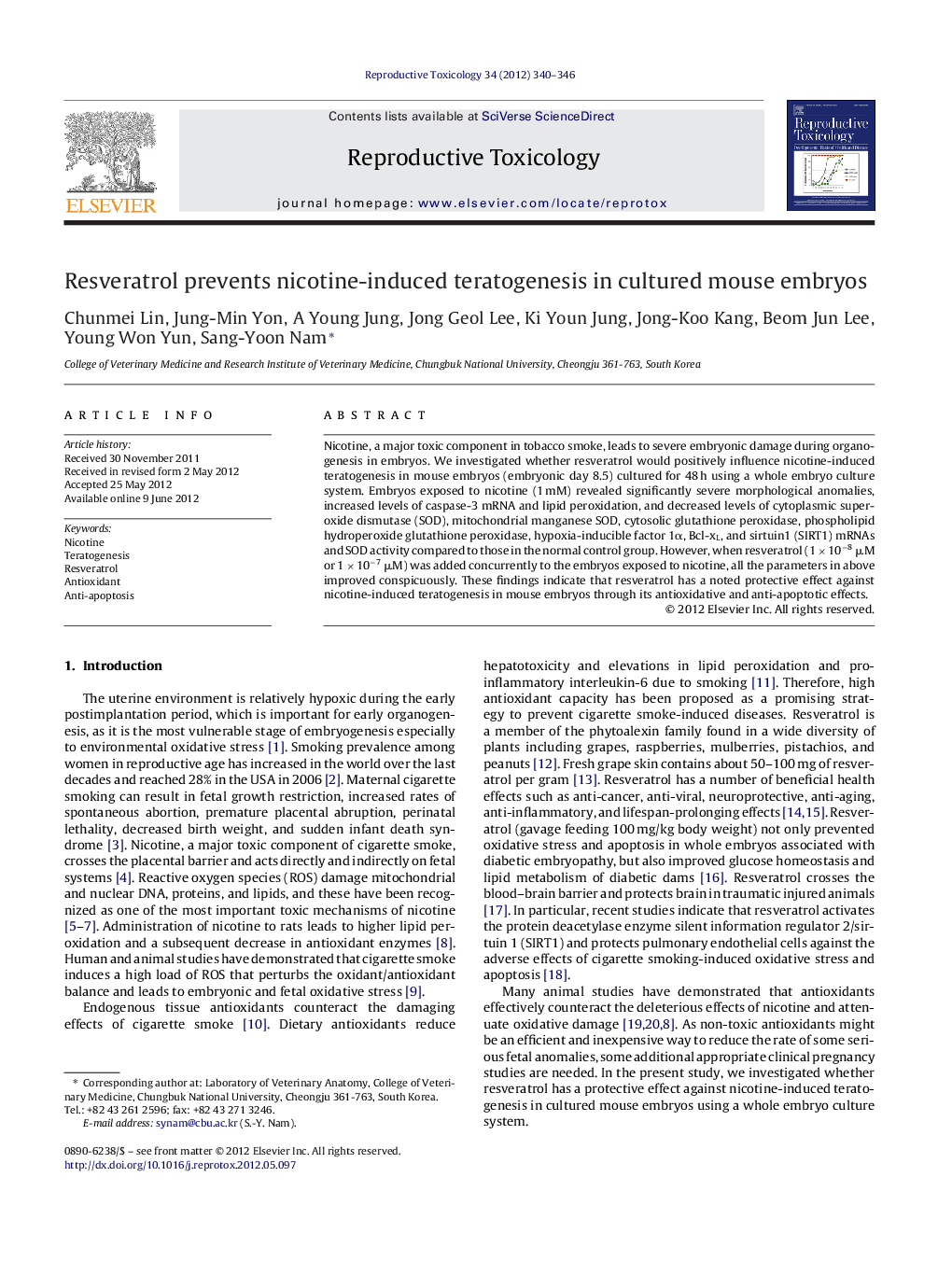| Article ID | Journal | Published Year | Pages | File Type |
|---|---|---|---|---|
| 2593819 | Reproductive Toxicology | 2012 | 7 Pages |
Nicotine, a major toxic component in tobacco smoke, leads to severe embryonic damage during organogenesis in embryos. We investigated whether resveratrol would positively influence nicotine-induced teratogenesis in mouse embryos (embryonic day 8.5) cultured for 48 h using a whole embryo culture system. Embryos exposed to nicotine (1 mM) revealed significantly severe morphological anomalies, increased levels of caspase-3 mRNA and lipid peroxidation, and decreased levels of cytoplasmic superoxide dismutase (SOD), mitochondrial manganese SOD, cytosolic glutathione peroxidase, phospholipid hydroperoxide glutathione peroxidase, hypoxia-inducible factor 1α, Bcl-xL, and sirtuin1 (SIRT1) mRNAs and SOD activity compared to those in the normal control group. However, when resveratrol (1 × 10−8 μM or 1 × 10−7 μM) was added concurrently to the embryos exposed to nicotine, all the parameters in above improved conspicuously. These findings indicate that resveratrol has a noted protective effect against nicotine-induced teratogenesis in mouse embryos through its antioxidative and anti-apoptotic effects.
► Embryos exposed to nicotine showed severe morphological anomalies. ► Nicotine increased the levels of caspase-3 mRNA and lipid peroxidation. ► Nicotine decreased the levels of SOD1&2, GPx1&4, HIF-1α, Bcl-xL, and SIRT1 mRNAs and SOD activity. ► However, resveratrol added concurrently to the embryos improved significantly these all parameters. ► Resveratrol might be a potent natural agent for diminishment of smoking-induced teratogenesis.
